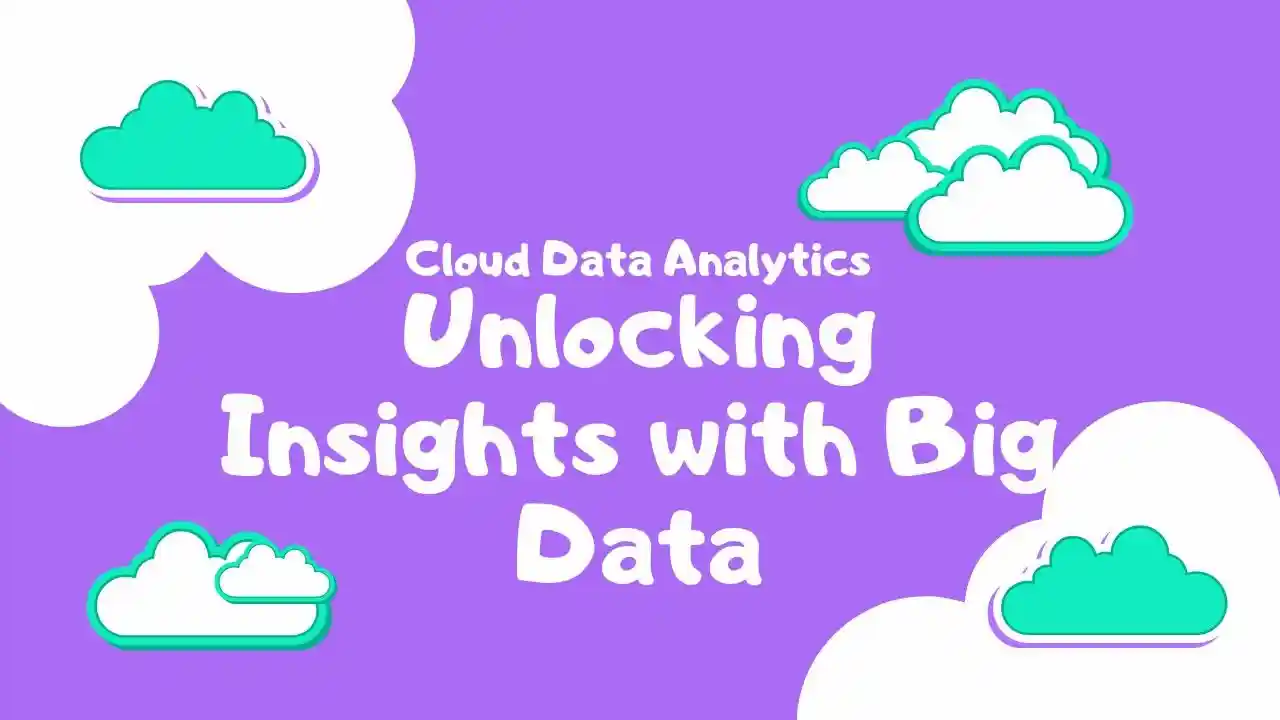Ethics in Cloud Computing: Navigating the Moral Landscape
Jan 07, 2025 - Cloud Computing

In today's fast-paced digital world, businesses are flooded with data from countless sources. However, data alone holds little value without a way to transform it into meaningful insights. This is where cloud data analytics becomes invaluable, providing a scalable, efficient, and cost-effective solution for businesses to handle and analyze massive data sets. Leveraging cloud computing, data analytics in the cloud helps companies process big data at unprecedented speeds, turning raw information into actionable insights that drive growth and innovation.
Cloud data analytics combines the power of cloud computing with data processing capabilities to tackle vast data sets efficiently. Traditional on-premises systems often lack the scalability needed for extensive data analytics, while cloud-based solutions offer limitless scalability. Cloud providers like AWS, Google Cloud Platform, and Microsoft Azure have created robust platforms that support data analytics tools, enabling businesses to harness insights without the limitations of physical infrastructure.
Scalability and Flexibility
Cloud solutions allow businesses to scale resources on demand. This means companies can handle sudden data spikes, such as during peak shopping seasons, without incurring high costs year-round. Platforms like Oracle Cloud Infrastructure provide flexibility for enterprises seeking to manage dynamic data workloads with ease.
Cost Efficiency
Traditional analytics infrastructure can be costly. Cloud analytics enables companies to avoid heavy upfront costs for hardware and only pay for the resources they use. By leveraging services like Infrastructure as a Service (IaaS), businesses can further minimize overhead, making cloud data analytics a practical choice even for small and medium-sized enterprises.
Real-Time Data Processing
Real-time analytics are essential for organizations looking to react instantly to changes. For instance, businesses in sectors such as finance, retail, and logistics benefit significantly from real-time data. With cloud platforms, companies can process and analyze data in real time, ensuring timely insights and rapid decision-making.
Enhanced Security and Compliance
Cloud security has become a top priority for all cloud providers, ensuring that data is well-protected. Providers implement rigorous security protocols, often surpassing what many businesses could achieve with on-premises systems. Using solutions like IBM Cloud, organizations can maintain compliance with industry standards and protect sensitive information, essential for fields like healthcare and finance.
The versatility of cloud data analytics enables its application across various industries:
Retail: Analyzing customer purchasing patterns to optimize stock and improve customer experience.
Healthcare: Tracking patient data to improve treatment outcomes and streamline patient care.
Finance: Enhancing fraud detection and providing personalized financial recommendations.
Manufacturing: Using predictive maintenance to prevent machine failures, thereby reducing downtime.
Each industry can leverage cloud data analytics in a way that transforms the raw data they collect into strategic business intelligence. The types of cloud computing solutions available make it easy for companies to select the most appropriate services for their unique needs, whether through IaaS for resource flexibility or SaaS solutions for accessible, pre-built analytics applications.
Despite its advantages, cloud data analytics does come with a few challenges:
Data Privacy Concerns
Companies often deal with sensitive information, making data privacy paramount. To address this, businesses should prioritize solutions that offer cloud security features. Implementing best practices, such as encryption and secure access management, can help businesses maintain data integrity while leveraging cloud analytics.
Complexity of Data Integration
Integrating various data sources, especially legacy systems, can be complex. Cloud platforms frequently offer tools that simplify data migration and integration, as detailed in this cloud migration guide.
Skilled Talent Shortage
As the demand for data analytics grows, there is a corresponding need for skilled analysts and data scientists. To bridge this gap, many companies invest in automation tools that handle repetitive tasks, enabling data professionals to focus on higher-value activities.
When selecting a cloud analytics solution, organizations should consider several factors:
Data Size and Complexity: Evaluate the data volume and variety you expect. Large organizations may benefit from comprehensive analytics platforms offered by major providers like AWS or Google Cloud, while smaller enterprises may prefer streamlined options.
Cost and Budget Considerations: Choose solutions that align with your financial constraints. For cost-effective options, many businesses start with SaaS or PaaS cloud computing solutions to access ready-made analytics tools.
Integration with Existing Systems: Ensure that the cloud platform can integrate smoothly with your current tools and data sources. Many providers offer native tools for seamless integration, simplifying the analytics process.
As big data continues to expand, the capabilities of cloud data analytics are expected to advance further. Emerging trends include AI-driven analytics, where artificial intelligence automates and enhances analytics processes, and predictive analytics for deeper insights into future trends. The synergy between AI and cloud data analytics will likely make real-time, actionable insights even more accessible, shaping the future of industries across the board.
For a deeper understanding of how cloud platforms function and their benefits, you may refer to resources on cloud computing basics and the different types of cloud computing that support diverse data needs.
Cloud data analytics empowers businesses to turn massive amounts of data into meaningful insights, all while staying scalable, cost-effective, and flexible. Whether improving customer experiences, refining product offerings, or optimizing internal operations, data analytics in the cloud holds the potential to transform decision-making processes. By carefully selecting the right analytics solutions and integrating them effectively, companies can unlock the full potential of their data and remain competitive in a data-driven world.
Copyright © 2026 ByteTechBlog By infyable.com. All Right Reserved.